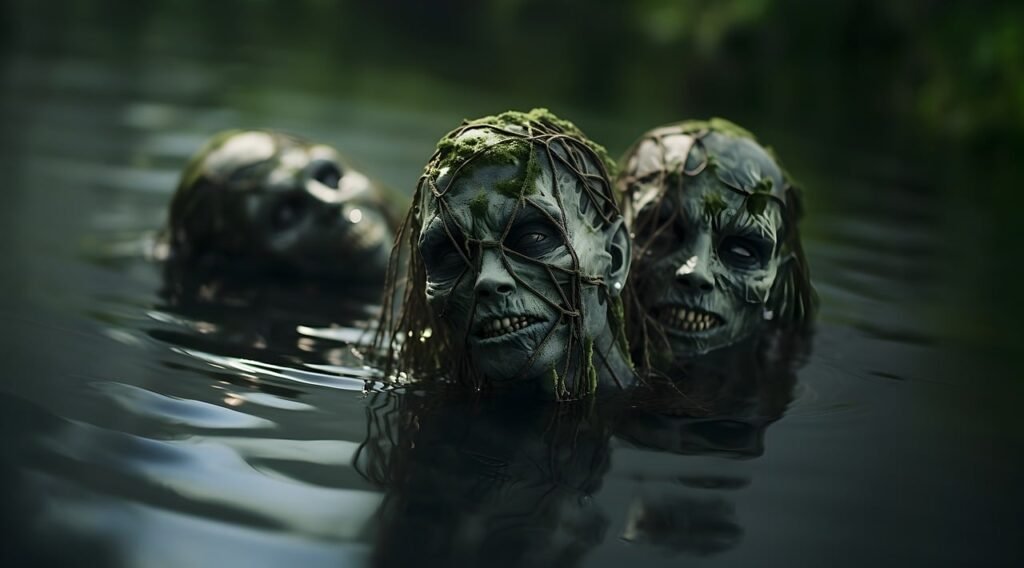Zombies, infected corpses with an insatiable hunger for human flesh.
Do you know the origins and history of zombies? Or how to survive the undead outbreak?
In this blog post, we will look at the origins of the zombie apocalypse and the scientific theories behind a hypothetical zombie virus, drawing parallels to real-life examples of parasites and diseases that manipulate the behavior of their hosts.
We will look at the psychological challenges of living in a zombie-infested world, as well as the effects of fear, stress, and isolation on mental health.
Join us as we unravel the threads of fiction and reality, exploring the cultural, societal, and psychological aspects that make this apocalyptic scenario so compelling to audiences worldwide.
Table of Contents
The Origins of Zombie Apocalypse
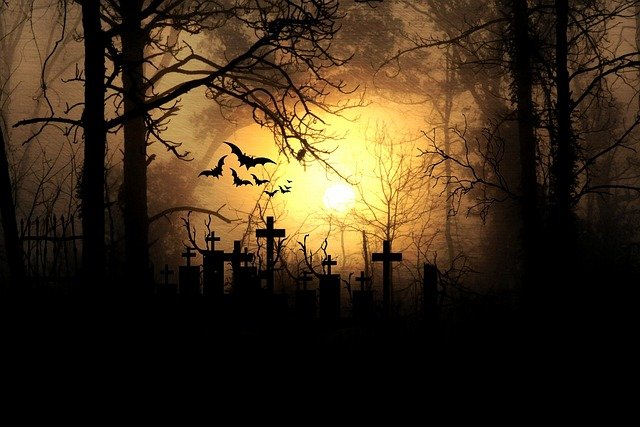
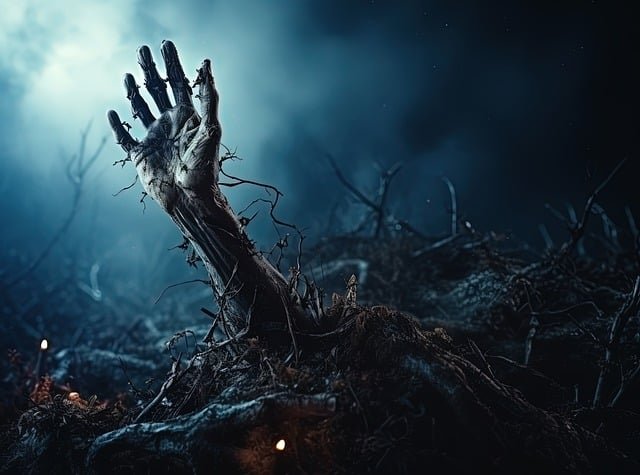
Historical and Cultural Origins of Zombies in Folklore
The concept of reanimated corpses dates back centuries and can be found in various cultures and folklore traditions.
In Haitian Voodoo, for example, the idea of a zombie is rooted in the belief that a sorcerer can raise the dead to do their bidding.
This notion has its roots in African and Afro-Caribbean religious practices, where spirits and the afterlife hold significant importance.
Similarly, ancient civilizations like the Greeks and Romans had myths about the dead returning to life, reflecting humanity’s fascination with life after death and the unknown.
Evolution of the Zombie Concept in Popular Media
The modern zombie, as we know it today, has undergone a significant transformation, largely influenced by George A. Romero’s 1968 film “Night of the Living Dead.”
Romero’s vision of reanimated, flesh-eating corpses set the stage for the zombie genre as we recognize it now.
Following his seminal work, a wave of movies, books, and video games further popularized the zombie apocalypse theme.
Notable examples include movies like “Dawn of the Dead” and “28 Days Later,” as well as TV shows like “The Walking Dead.”
These portrayals often depict zombies as a result of a viral outbreak, exploring themes of infection, survival, and societal collapse.
As the concept of the zombie apocalypse continued to evolve, it became a powerful allegory for various societal fears and anxieties.
In some cases, it serves as a commentary on consumerism, highlighting the mindless pursuit of material goods.
In others, it symbolizes the fear of losing individuality in an increasingly interconnected world.
Regardless of the interpretation, the zombie apocalypse has become a versatile and enduring metaphor in popular media, reflecting our collective fears and fascination with the unknown.
By understanding the historical and cultural origins of zombies in folklore and tracing their transformation in modern media, we gain valuable insights into the enduring appeal of the zombie apocalypse concept.
It allows us to appreciate how this once-niche theme has become a cultural phenomenon, captivating audiences across the globe and inspiring a myriad of creative expressions in literature, film, and beyond.
The Science Behind a Zombie Virus


Fictional Scientific Explanations for a Zombie Virus
The idea of a zombie apocalypse often hinges on the spread of a fictional virus that reanimates the dead.
While purely speculative, these fictional viruses are often portrayed as highly contagious pathogens that rapidly infect humans and alter their brain functions, turning them into mindless, aggressive creatures.
Writers and filmmakers have explored various theoretical scenarios, such as mutations of existing viruses or experimental bioweapons gone awry, to create compelling narratives.
These fictional explanations capture the imagination by tapping into our primal fears of uncontrollable diseases and pandemics.
Real-Life Examples of Parasites and Diseases
Interestingly, nature provides us with examples of parasites and diseases that manipulate the behavior of their hosts, although not to the extent seen in zombie fiction.
For instance, the Toxoplasma gondii parasite can alter the behavior of rodents, making them less fearful of predators, thus increasing their chances of being consumed by cats, the parasite’s primary host.
Similarly, the hairworm parasite influences the behavior of grasshoppers, compelling them to jump into water, where the parasites reproduce.
While these examples are far from the zombie apocalypse scenario, they highlight the intriguing ways in which organisms can influence the behavior of others in the natural world.
Exploring the fictional and real-life aspects of a zombie virus not only sparks our imagination but also raises questions about the boundaries between science fiction and reality.
While the idea of a zombie virus remains firmly in the realm of fiction, it allows us to contemplate the potential consequences of infectious diseases and the importance of scientific research and preparedness in the face of emerging threats.
Through the lens of a zombie apocalypse, we confront our fears about the unknown and the extraordinary, prompting discussions about ethics, morality, and the human condition.
Survival Tactics in a Zombie Apocalypse
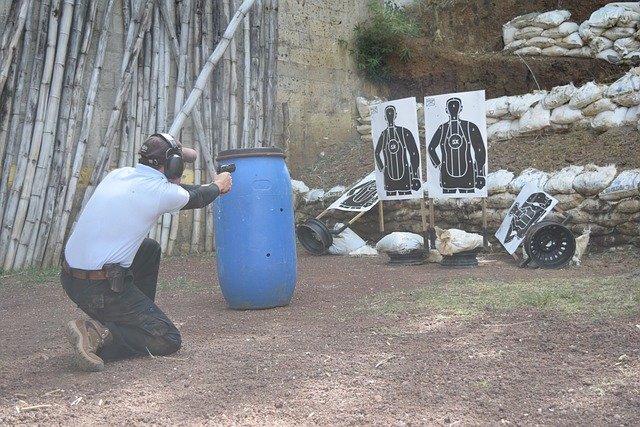
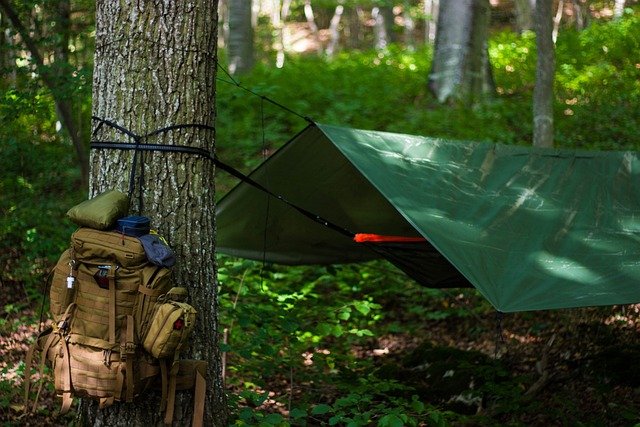
Basic Survival Skills: Finding Food, Water, and Shelter
In a post-apocalyptic world overrun by zombies, the fundamental necessities of life become scarce resources.
Survivors must learn essential skills such as foraging for edible plants, hunting animals, and purifying water to sustain themselves.
Locating safe and defensible shelters, whether makeshift barricaded structures or remote, hidden locations, becomes paramount. Basic survival knowledge, including fire-making, first aid, and navigation, is crucial for long-term survival.
Weapons and Self-Defense Strategies
The ability to defend oneself against zombie attacks and hostile humans is vital.
Improvised weapons like clubs, spears, and slingshots can be effective against zombies, while firearms provide a more powerful means of defense.
However, ammunition is limited and must be used judiciously. Learning self-defense techniques, stealth, and situational awareness can help survivors evade encounters with zombies and hostile factions.
Understanding the strengths and weaknesses of different weapon types is essential for strategic defense.
Building Alliances and Communities for Safety
While individual survival skills are crucial, forming alliances and communities with other survivors significantly increases the chances of long-term survival.
Strength lies in numbers, and collaborative efforts enable the sharing of resources, skills, and knowledge.
Communities can establish defenses, cultivate food, and provide medical care more effectively than isolated individuals.
Building trust and cooperation among members is essential, as internal conflicts can be as dangerous as external threats. Leadership, diplomacy, and conflict resolution skills are invaluable in maintaining a stable and secure community.
Surviving a zombie apocalypse requires a combination of practical skills, resourcefulness, and the ability to adapt to ever-changing circumstances.
Those who can navigate the challenges of finding sustenance, defending themselves, and fostering cooperation with others stand a better chance of not just enduring but potentially rebuilding a semblance of society in a world plagued by the undead.
Psychological Challenges of a Zombie Apocalypse
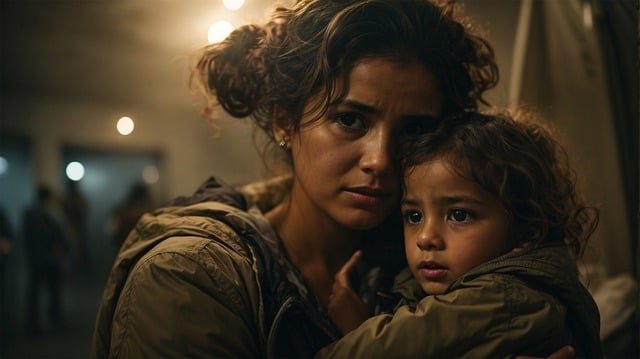
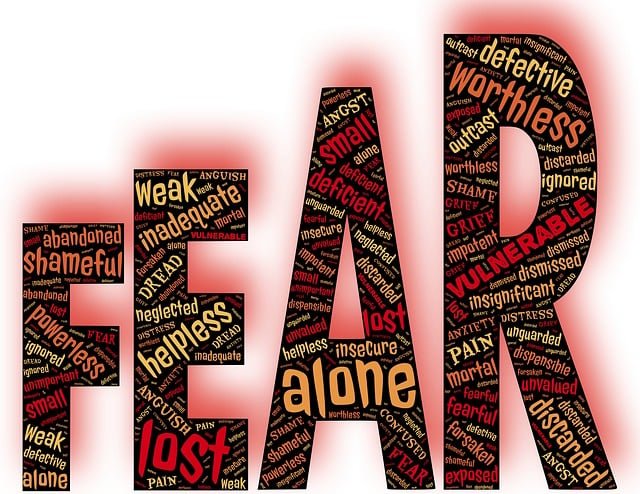
Coping with Fear, Stress, and Trauma
The constant threat of zombie attacks, scarcity of resources, and the loss of loved ones create an environment of pervasive fear, stress, and trauma.
Survivors must develop coping mechanisms to manage these overwhelming emotions.
Fear can be a powerful motivator, but it can also paralyze decision-making.
Learning to confront and overcome fear is essential for making rational choices under pressure.
Managing stress through relaxation techniques, meditation, or physical activity can help maintain mental stability.
Additionally, survivors must address past traumas and grief to prevent emotional burdens from hindering their ability to adapt and thrive.
Maintaining Hope and Mental Resilience
In the face of seemingly insurmountable challenges, maintaining hope becomes a beacon of light amidst the darkness of the apocalypse.
Believing in the possibility of a better future, even in the direst circumstances, fosters mental resilience.
Individuals and communities that cultivate hope are better equipped to endure hardships, work towards goals, and support one another.
Acts of kindness, compassion, and camaraderie become even more meaningful, reinforcing the human spirit and the will to survive.
Effects of Long-Term Isolation on Mental Health
Isolation in a post-apocalyptic world can lead to profound loneliness and deteriorating mental health.
Human beings are social creatures, and prolonged isolation can cause depression, anxiety, and a sense of hopelessness. Maintaining social connections, even in smaller communities, is crucial for mental well-being.
Establishing routines, engaging in meaningful activities, and nurturing relationships provide a sense of purpose and belonging.
Moreover, fostering a sense of community and belonging can mitigate the adverse effects of isolation, ensuring that survivors remain emotionally connected and resilient in the face of solitude.
Addressing the psychological challenges of a zombie apocalypse is as important as mastering survival skills.
Emotional well-being not only preserves mental health but also strengthens the bonds between individuals, fostering a sense of unity and shared purpose.
By recognizing the importance of mental resilience, survivors can confront the darkest aspects of the apocalypse with courage, hope, and the determination to endure.
Cultural and societal Impact
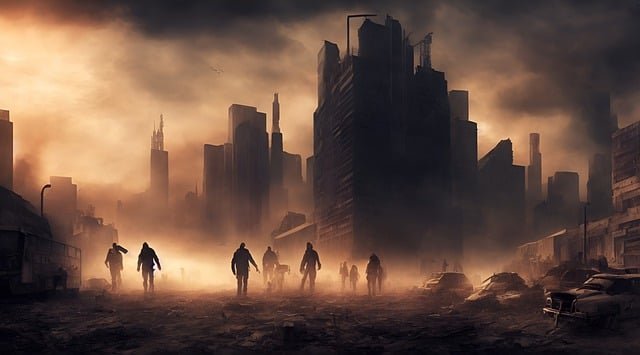
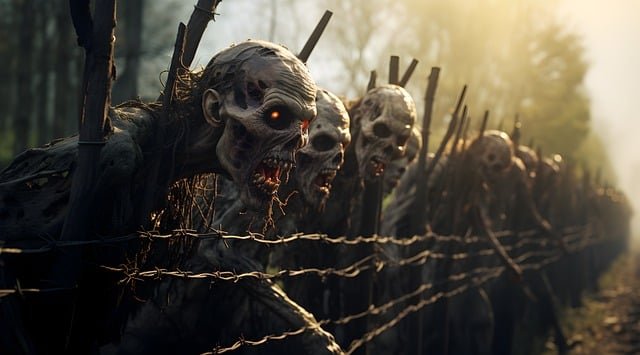
Changes in Social Norms and Values During a Crisis
In the wake of a zombie apocalypse, societal norms and values undergo drastic transformations.
The importance of individualism gives way to collective survival, where cooperation, altruism, and resource sharing become paramount.
Traditional social hierarchies often dissolve, making room for new leadership structures based on merit, skills, and contributions to the community.
Concepts like trust, loyalty, and mutual support take precedence over material wealth or social status, reshaping the way people perceive and interact with one another.
Exploration of Morality and Ethics in Extreme Situations
The dire circumstances of a zombie apocalypse force survivors to make morally complex decisions.
Choices about resource allocation, self-defense, and the treatment of others challenge established ethical frameworks.
Questions about the value of human life, the ethics of sacrificing a few for the greater good, and the boundaries of self-preservation become prevalent.
Exploring these moral dilemmas in extreme situations provides a lens through which humanity’s ethical principles are scrutinized, leading to profound philosophical and existential debates within surviving communities.
The Role of Leadership and Governance in Post-Apocalyptic Societies
Leadership becomes a critical element in ensuring the survival and stability of post-apocalyptic communities.
Effective leaders must balance decisiveness with empathy, instilling confidence in their followers while making tough choices for the greater good.
Governance models evolve, emphasizing fairness, transparency, and inclusivity.
The ability to mediate conflicts, foster cooperation, and maintain the morale of the community becomes the hallmark of successful leaders.
Communities that establish strong, adaptable leadership structures are better equipped to navigate challenges, allocate resources efficiently, and provide a sense of direction and purpose to their members.
The cultural and societal impact of a zombie apocalypse extends far beyond immediate survival concerns.
It serves as a crucible for examining human nature, social dynamics, and the fundamental principles that underpin civilization.
By dissecting the transformations in social norms, ethical considerations, and leadership dynamics in the face of extreme adversity, survivors and observers alike gain profound insights into the essence of humanity and the resilience of the human spirit.
Popular Media’s Influence on Zombie Apocalypse Preparedness


How Movies, TV Shows, and Games Shape People’s Perceptions of Survival Tactics
The portrayal of zombie apocalypses in popular media significantly influences how people perceive survival strategies.
Movies, TV shows, and video games often depict characters using various weapons, fortifying shelters, and forming alliances to fend off hordes of zombies.
These portrayals not only entertain but also educate audiences about potential survival tactics.
Viewers and players learn about different types of weapons, tactics for evading zombies, and strategies for fortifying defenses.
However, it is crucial to recognize that, while entertainment media can provide valuable insights, real-life survival situations are far more complex and challenging.
Analyzing Common Misconceptions and Unrealistic Scenarios Depicted in Media
Despite its entertainment value, popular media sometimes perpetuates unrealistic scenarios and misconceptions about surviving a zombie apocalypse.
Common myths, such as the infinite supply of ammunition or the idea that loud noises always attract zombies, can mislead individuals who are genuinely interested in preparedness.
It is essential to critically analyze these portrayals and separate fact from fiction.
Understanding the limitations and flaws in media depictions allows individuals to focus on practical, evidence-based strategies for real-life emergency preparedness.
The Importance of Critical Thinking and Practical Skills Over Fictional Portrayals
While enjoying zombie-themed movies, TV shows, and games, it is crucial to approach the content with a critical mindset.
Critical thinking helps individuals discern between feasible survival tactics and exaggerated, impractical scenarios.
Moreover, acquiring practical skills such as first aid, basic survival techniques, and self-defense proves invaluable in any emergency situation, including a zombie apocalypse.
By emphasizing the importance of real-world skills over fictional portrayals, individuals can better prepare themselves to face a wide range of challenges, whether caused by natural disasters, pandemics, or other unforeseen events.
In summary, popular media plays a significant role in shaping public perceptions of zombie apocalypse preparedness.
While these portrayals can inspire and educate, it is essential for individuals to critically evaluate the information presented and focus on developing practical skills and critical thinking abilities.
By combining entertainment with a realistic and informed approach to emergency preparedness, individuals can enhance their resilience and adaptability in the face of any crisis.

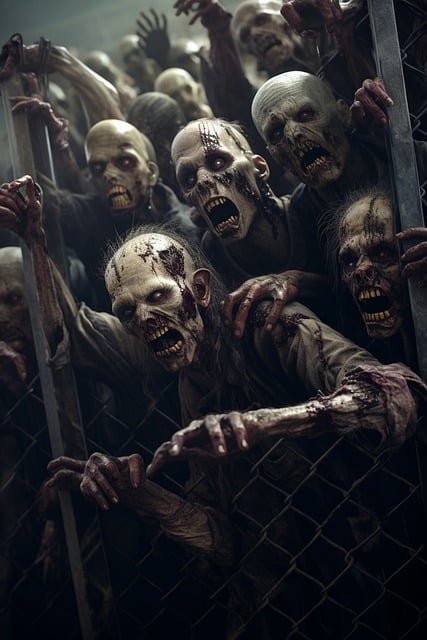
Conclusion
The allure of the zombie apocalypse lies not just in its terrifying scenarios but in the opportunity it provides for self-reflection and exploration of the human condition.
It forces us to confront our fears, question our values, and contemplate our capacity for resilience and compassion.
While the zombie apocalypse remains a fictional concept, the skills, adaptability, and community spirit discussed in this exploration are applicable to real-life emergencies.
As you enjoy the thrill of zombie-themed entertainment, remember the importance of being prepared for genuine emergencies.
As we continue to navigate the complexities of our world, let the lessons from the zombie apocalypse remind us of the strength of the human spirit and the power of preparedness in the face of uncertainty.

